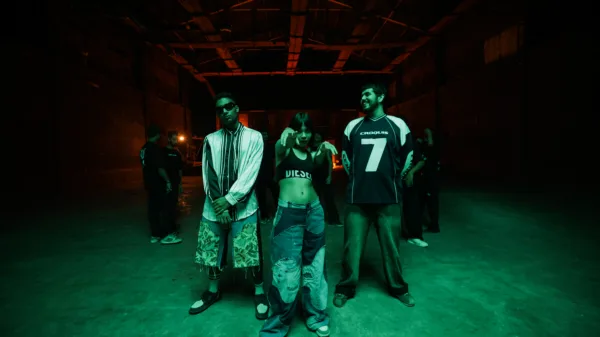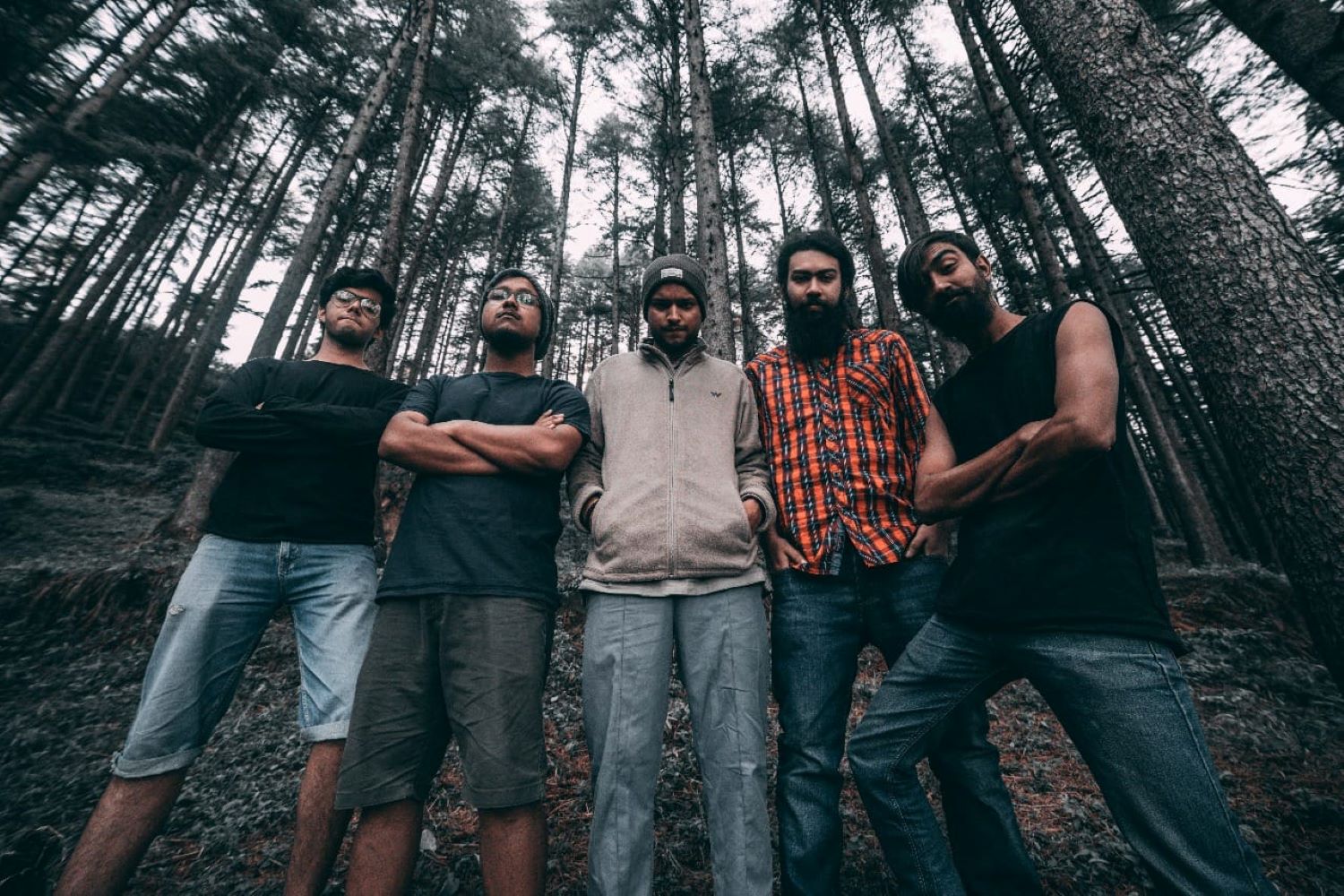The metal scene in India is known for their eclectic mix of bands and artists who have been experimenting with different styles – from old school thrash, groove metal, death metal and others to modern-day sounds like djent, progressive metal, metalcore and many more so to speak. On the contrary, it also rings true that the metal scene has been dwindling quite a bit in the present times, with a lack of shows and audience attendance, to the point where showcasing one’s ingenuity becomes a difficult task even if it is something that could change the way we see the genre in the context of our country altogether.
Bringing in that individual flair to an already existing sonic palette is something not a lot of artists have mastered, but those who did, have also tried to make it available to the general mass by giving them something they can relate to; something completely their own. Aarlon, the 5-piece alternative metal band from New Delhi has taken the country’s metal scene by storm by doing exactly that, crafting a sui generis sound that adds a whole new dimension to the way we look at Indian metal in general.

They released their debut EP Dafan on March 27, 2022, which infuses zesty lyrical structures with a progressive metalcore palette and electronic elements, laying down a fundamentally political narrative that screams about oppression, revolution, identity crisis, freedom and love. The band went ahead with Hindi as its narrative lingo which proved to be a rather wise artistic decision since it resonates with a larger section of the audience and even those who are getting the ball rolling with this kind of music.
Adding a drop to the pool of protest music which has seen a significant amount of limelight in the recent times owing to the changing political climate of the country, “Vidroh”, the pilot track waves the flag of rebellion and invokes a sense of urgency through its punchy guitar riffs, thunderous drumming and Pritam Adhikary’s soul-stirring vocals. A similar sentiment is carried forward in “Inquilaab” which harshly criticizes the drawbacks of the people in power and accentuates the plight of those who have been directly at the receiving end of injustice. The spirit of revolution is glorified in ‘Inquilaab’ that delivers its message with utmost zest and grit.
“Panchhi” is a eulogy for the natural world which has been subjected to the destructive forces emitted by mankind. One of the tamer tracks of the record, it uses acoustic guitar lines, shmaltzy vocals and an ear-splitting outro to induce a visceral sense of despondency.

Using rainstorms and monsoon as a metaphor to express melancholy, “Saavan” croons about the sheer sense of disillusionment that comes along with self-awareness and epiphany. Evoking a nostalgic mood throughout its course, the song delivers itself with the help of tender synth-scapes that effloresce into a heavier texture at the climax.
“Tu” is an ode to lost love. Setting up a sentimental ambiance from the very beginning, it takes you onto a journey of endless emotional turbulence and desperation. From starting with a milder intro to quickly transitioning into its usual rock-fuelled palette, the song carries with it a heart-rending sense of longing and discontentment. The catharsis comes by the end of the track, with the heavy guitar chugging and boisterous drumming climaxing back into the softer intro verse.
“Aaina” could’ve done a lot better arrangement-wise. While I would give it props for the abstruse idea that it tries to impart, it falls behind when it comes to keeping up with the vigor of the album, lacking in any considerable noteworthy element.
“Dafaan” and “Rok Lo” almost fight against each other in their narratives. While the former is claustrophobic, crying about the helplessness that surrounds our oppressed selves, the latter sings about the ticking time bomb residing within us, waiting to explode and unleash all its suppressed emotions and vexations. Similarly, they mirror this dichotomy in their accompanying instrumentals. “Dafaan” is soft and mellow with only a short heavier section, using mostly ambient elements to lay out its soundscape. “Rok Lo” is rough, and full of fiery passion incorporating heavy guitars, ebullient drumming and compelling vocals by Gaurav Basnet from Nigambodh.

Aarlon has tried their best to sustain a sonic structure in Dafan that derives inspiration from a sub-genre that is slowly starting to take its roots in the Indian metal scene. With the modernization of music accessibility and more people gaining exposure to different sounds, it is only natural that someone would pick them up, add their unique flavor to them and create something that they can call completely their own. This album has set a lot of expectations from the band that is for them to live up to. As for now, we can only wait and see how they progress with it and whether they stand out to be one of the very bests in the scene.


























